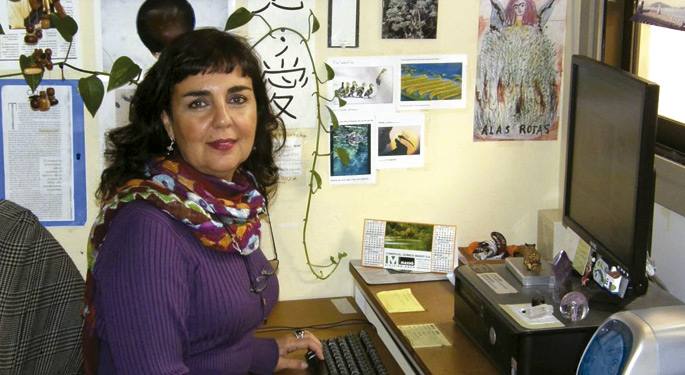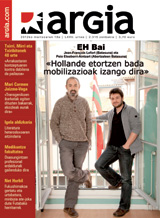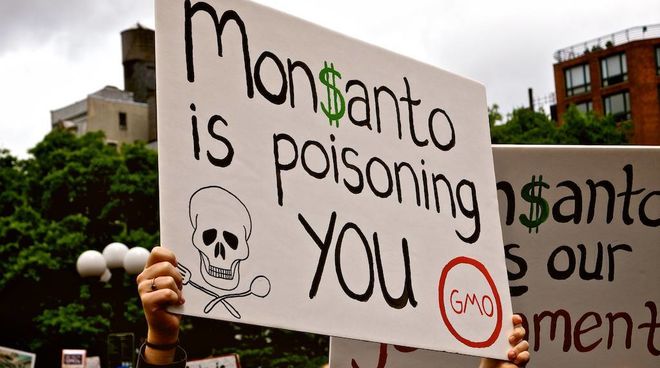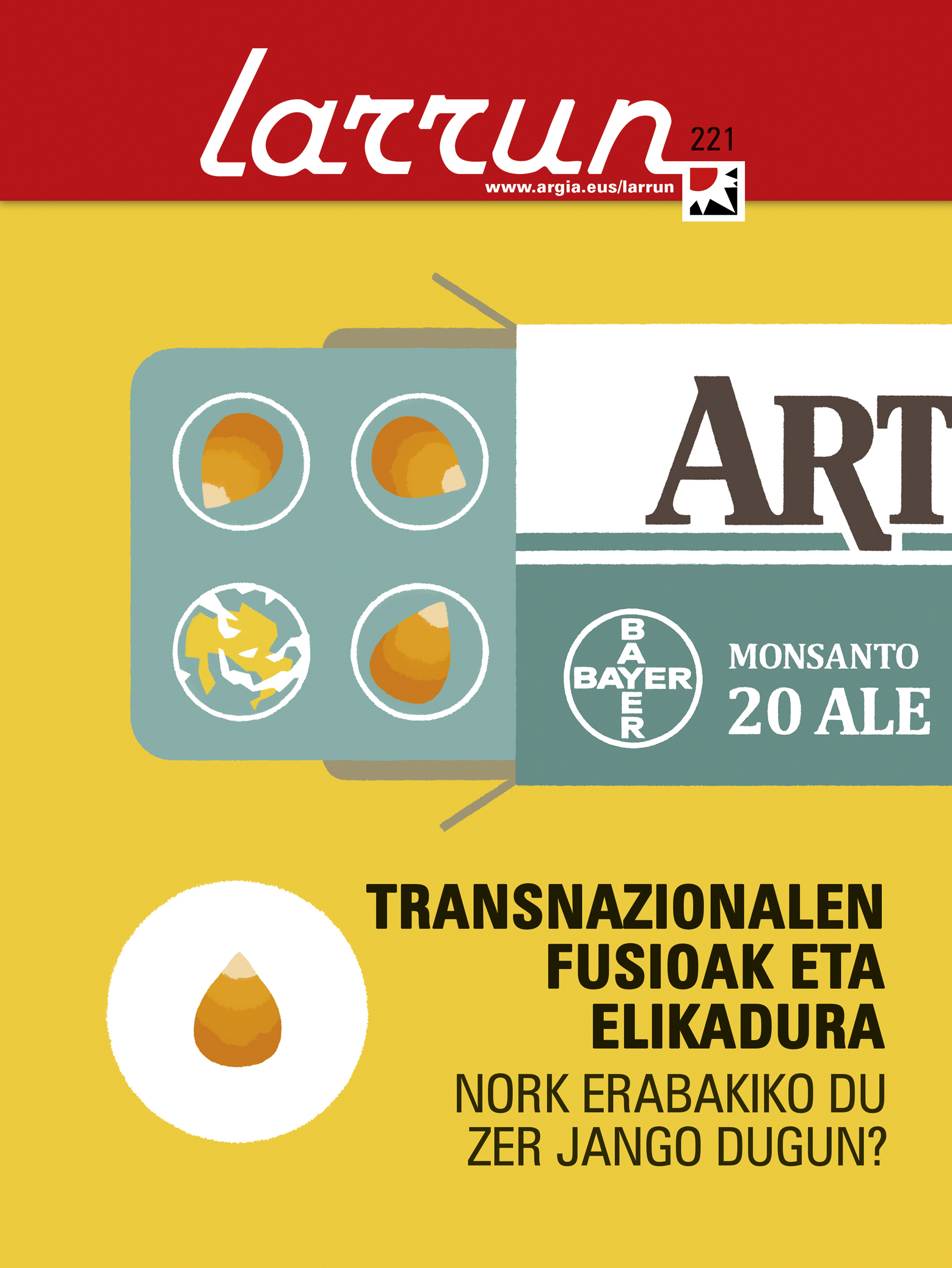"There is insufficient information on GM damage and its long-term consequences"
- The Biologist is a coordinating program of the Instituto de Investigación Agraria de Canarias and a member of several Spanish associations: Phytopathology, Science of Horticulture and Organic Agriculture. After participating in the International Conference on Transgenics held in Madrid in November last year, we carried out this interview on the occasion of what he said then.

In the days of Madrid you said that there is a flow of transgenders to native plants and microorganisms. What is transgen?
To better understand it, you have to first explain what the gene is. The gene is a part of DNA or RNA, molecules that store hereditary information, containing the information needed to perform a function, for example, to generate a protein. When a gene is separated from its genome and inserted into the genome of another organism, it is called transgene. This transgene sometimes escapes and is found in plants that were not transgenic at first. These plants become transgenic due to uncontrolled flow.
How do GMOs escape?
It has been scientifically proven that there is sometimes a horizontal transfer of genes in nature, for example through pollen, from plants manipulated to microorganisms in the ecosystem or to other plants. An easily understandable example is the case of indigenous maize varieties in Mexico: The transgenic variants that have arrived from the United States have been contaminated.
Some say that this is not a problem in itself, because transgenders, even if they move, are not harmful.
That too remains to be demonstrated. The limited amount of research and, sometimes, the lack of dissemination, means that there is not enough information on the damage of GMOs and their long-term consequences. There are many scientists who perceive this gap: research must be carried out in order to put the two points of view on par. Perhaps we would not be so concerned if we could investigate more freely and if there were research projects in both directions. But in general, there are more people working to show that GMOs are good enough. Very little is trying to demonstrate the negative consequences.
But if the starting point of a research is to prove that something is good or bad, isn't it a distortion of science?
Science has slipped, anybody who does. You start from a hypothesis that gives you a trend. It is not the same to organise an experiment – even if the experiment is correct – to demonstrate the benefits of GMOs, or to prove their damage. Scientists are people, and as we think we see things in one way or another. In addition, in some cases there may be economic reasons for reinforcing these thoughts.
You said: “Despite the advances in the methodology, there are limitations to the interpretation of the results”.
In order to interpret the results of the experiments carried out in a microcosm or laboratory, the conditions for the development of that experiment must be taken into account. They cannot be directly extrapolated to actual conditions. This interpretation should be made according to each rural system, integrating all the ecological variables. It's very difficult. If the experiment in the field is not done in several cycles and you don't have all the controlled factors more or less, how will you extrapolate a laboratory data to the environment, knowing that if you change the temperature, the pH, the concentration of CO2... the result can be totally different? There's not enough evidence, not enough repetition, not universal weather conditions to ensure anything. Neither for nor against.
However, I would say that most of the literature on the subject says that GMOs are not harmful.
Anyone who has placed these products on the market facilitates research to promote them. It is more difficult to conduct free research against industry. In one sense or another everything can be called into question. I do not think it is better a priori than an experiment that talks badly about GMOs. I, as a scientist, don't have to think that they're made to deform reality. What I have to say is that more experiments are being carried out in favour of GMOs, and that it is easier to carry them out than in the opposite direction. The sale of transgenic seeds and plant protection products is a business. If this business is guaranteed by scientific experiments that confirm the usefulness of the invention... It's Fernando's truth.
Citizens who are not scientists will find that science should always say the same when it comes to researching the same. Is it not uncommon for such contradictory results to occur in experiments?
As far as GMOs are concerned, I do not believe that the results are contradictory either. The types of methodologies used are variable (there are works performed in laboratory, in greenhouse, under different conditions, with different techniques...) and the number of studies performed is not enough to obtain clear conclusions.
Industry spokesmen, but also many supposedly independent scientists, say that sufficient tests have been done, many tests, and it is therefore reasonable to think that they are safe.
They say that there are no plants as studied as GMOs and that to market a GMOs you have to do a lot of tests and research. But reality says new things appear around them. Dr. Gilles-Eric Séralini spoke at the Madrid Conference. Séralini, a specialist in the toxicity of transgenic and herbicide varieties, focused on what we are saying. The relevant tests have not been carried out to demonstrate the safety of GMOs, he said. He set an example from his research, that of rats fed transgenic corn. Three months later, the animals had changes in the organs responsible for detoxification: liver, kidneys... However, these results are not published and the extension of the experiments is not authorized. The only companies that carry out the tests, which are very expensive, by the way, are the companies themselves producing GMOs.
It is precisely Séralin, if I am not mistaken, who was denied the funding of further research for three years.
Maybe what we're most concerned about is that lack of transparency, that denial of opportunity.
Can it be said, then, that the environment does not arouse the desire to investigate this expressly?
Of course. How many researchers are there right now in Spain talking about GMOs, let's say, in this sense? Very little.
Some say that those who have doubts about GMOs know nothing about science.
It's hard to have both approaches, that is, being a scientist and really interested in this subject, because sometimes it's wasting time. Imagine that an independent scientist gets some result. Could you publish it? I don't know, I don't know.
Another problem mentioned in the conference was the appearance of resistant pests.
Yes. The production method for many transgenic plants has been the incorporation of a gene from Bt bacteria to this plant, which generates a protein that kills insect pests. This gene can pass to other microorganisms or plants in the area. We are all aware of the studies that say that there is such a possibility and others where this gene leak has already been detected and where resistance has been proven. Perhaps resistance develops in an environment and in another one not, everything has not been analyzed, perhaps no sudden resistance was generated in the conditions in which the first investigations were carried out, but in other conditions yes... We need to be certain that this does not happen. And I, at least, once the bibliography has been examined, have nothing but uncertainty.
Is it extrapolated too much in the literature on GM?
One of the conclusions I draw is that it cannot be extrapolated and that more research needs to be done. 99% of the articles I have read end up highlighting these two main conclusions: on the one hand, the data are not extrapolated – either in favour or against – and on the other, in all cases, more research is needed.
It doesn't seem to be the most widespread opinion in the scientific community.
No. That is a clumsiness of those who promote the projects, but that is the case. I hope that it will change, that it will not be afraid of one thing or another.
Just a clumsiness?
I think so, and I say so. Well, I'm not stupid, and I know that economic interests are capital interests. Is there anything more than economics?
José Ramón Olarieta Alberdi is a doctor in agronomist engineering and professor at the University of Lleida, as well as a member of the Catalan association Som what Sembrem.El last year published a book on transgenics: Are GMOs really safe and necessary? In April, Leitza and... [+]
Laborantza-industrian egin den inoizko akordiorik handiena gelditzeko eskatu diote milioi bat lagunek Europari: Monsanto eta Bayer enpresek indarrak batuko dituzte galarazi ezean. Hazi transgenikoen eta industria farmazeutikoaren arteko lotura 2016tik datorren arren, azken... [+]
Europako Batzordeak iragarri du sakon aztertu nahi duela Bayer konpainiak Monsanto erosteak kalterik egingo ote dion pestiziden eta hazien merkatuari. Bruselak adierazi du fusio-operazioa burutzeak bi arlo horietako munduko enpresarik handiena sortuko lukeela, eta horrek... [+]























